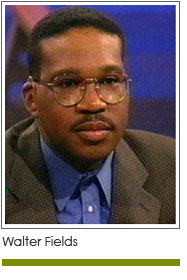 It seems as though not a day passes when a mayor of a major city or county executive announces drastic cuts in government programs and services due to budget shortfalls as a result of the economic downturn. While many of these places have grown accustomed with trying to do more with less, current conditions not only threaten their stability but could cause irreparable harm to their residents; particularly Blacks.
It seems as though not a day passes when a mayor of a major city or county executive announces drastic cuts in government programs and services due to budget shortfalls as a result of the economic downturn. While many of these places have grown accustomed with trying to do more with less, current conditions not only threaten their stability but could cause irreparable harm to their residents; particularly Blacks.
Already facing diminishing resources, the Black community in places like Detroit, Baltimore, Newark, Philadelphia and Prince George’s County, Maryland, just to name a few, are battling chronic conditions such as rampant joblessness now compounded by home foreclosures and the credit crunch. And for the time being there appears to be no end in sight. In fact, many economists are predicting a deep recession that could last for the next 12 months. All told, not good news for a community that lags even when the economy is robust.
So now mayors and county executives are faced with an untenable choice for an elected official: cut services or raise taxes. The latter is never embraced out of fear of voter backlash. So the former becomes the approach to balance the books by default. Yet, it is a shortsighted strategy as the very services that are usually cut are those that either sustain a reasonable quality of life in the community or provides much needed support to low-income residents, many of whom are often Black. Over the last few weeks, papers across the country have run stories reporting on cuts in library services, recreation programs, and other activities that go a long way toward making communities habitable. Now, the current economic crisis is forcing many cities and counties to make preemptive moves to try to stem the red ink.
For some time now, at least in progressive circles, there has been talk of advancing an urban agenda or so-called domestic “Marshall Plan” to revitalize the nation’s cities and neighboring suburbs. It’s time the idea moved from discussion to development and implementation. The election of an urbanite as President of the United States should bode well for the welfare of our metropolitan areas; I hope. While I don’t think it’s necessary for the incoming administration to adopt the language of those who have been advocating an urban agenda, the magnitude of the crisis in our cities is deserving of some special acknowledgement by the President-elect.
Over the past eight years the word “city” has been minimized and racially cast. The racial connotation has been enough to make any direct reference to the word city immediately suspect as urban dwellers are perceived to be Black and poor. President-elect Obama need not invest heavily in the rhetoric of urban politics but, at a minimum, put forth proposals that are universal in nature but will have substantive impact on the urban condition. We are faced with an entire generation of Black youth who stand to be permanently detached from mainstream society due to inferior education, resulting in long-term unemployment and underemployment, and in many cases, incarceration. The costs borne by our nation by their exclusion is far greater than the costs we would bear if we took a proactive stance in creating pathways for the success of young adults in our communities.
This nation, despite what many believe, cannot recover economically if our cities and neighboring suburbs are left to rot. Under the Obama administration the Department of Housing and Urban Development (HUD) must be taken seriously and not treated as a poor cousin to the other Cabinet level agencies. HUD was a disaster under the Bush administration, harking back to the Reagan era when the disdain for urban America was clear. While the agency was improved under President Clinton, it has yet to be given its recognized for the role in can play in the nation’s economic renaissance. So long as HUD is treated as the overseer of bad public housing we will have imperfect approaches to problems that can only be addressed if we find ways to fully embrace the potential of urban America.












